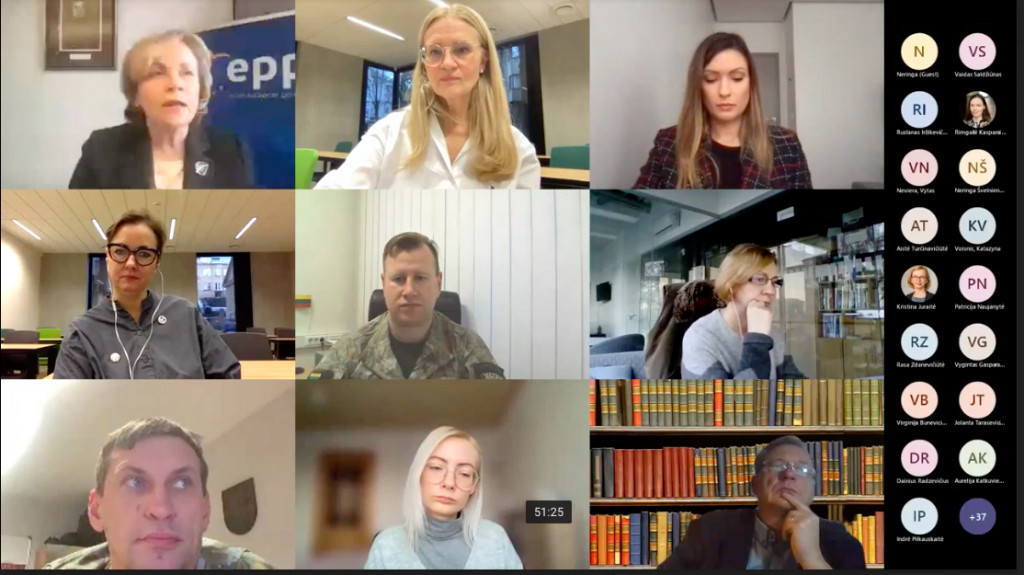 Back
Back

The start of Russia’s war against Ukraine has given the topic of disinformation even more relevance. Experts and project employees interviewed by DIGIRES emphasize that in order to achieve greater digital resilience of society, it is important to develop critical thinking among its members and to introduce media literacy training right from the school.
Disinformation breeds mistrust
According to Gintaras Koryzna, Director of the Strategic Communication Department of the Lithuanian Armed Forces, one of the most important aspects when it comes to disinformation and the ability to resist it is public education and the development of critical thinking.
“Education should be carried out in various directions and systematically right from the beginning of school. It is clear that our opponents, the spreaders of disinformation, work systematically, they use well-thought-out information campaigns, use modern information technologies combined with cyber-attacks, consistently monitor our information space, quickly react to our media content and otherwise manipulate information to achieve their goals, so we must learn to recognize it independently and at the earliest possible stages”, says G. Koryzna.
As G. Koryzna explains, information incidents in the public space are only increasing: attacks from the Chinese side contributed to the Russian attacks that have been experienced for several years at the end of last year. According to him, the spreaders of disinformation from these countries create narratives that Lithuania is a supposedly “failed state” that is unable to provide social guarantees to its citizens. Disinformation is also spread on the topics of NATO and illegal migration, and the goal of such efforts by opponents of the state is not only to construct a negative image of Lithuania, but also to reduce the public’s trust in their state and its institutions.

Disinformation is an instrument of war
According to Rasa Juknevičienė, a member of the European Parliament, disinformation is one of the military strategies used by regime states to harm democratic ones. For example, countries such as Russia and China are establishing special military units whose job it is to organize disinformation campaigns and cyber-attacks. A special committee INGE was recently established in the European Parliament, and R. Juknevičienė is also a member. The field work of this committee includes the investigation, analysis and preparation of prevention measures of organized acts and individual incidents related to the interference of foreign countries in democratic processes in the European Union, including disinformation.
However, according to R. Juknevičienė, so far there are no such all-encompassing effective methods in the fight against a much more systematic mechanism of spreading disinformation. “The situation in Lithuania is not very different from other countries. The principle is the same everywhere – autocratic states, using inherently democratic tools such as freedom of speech and the media, try to destroy democratic societies and change the world view according to a narrative that benefits them,” says the MEP member.
Lithuania was in the vanguard
Speaking about Lithuania’s efforts in solving the problem of disinformation, the Deputy Minister of Culture Vygintas Gasparavičius is glad that Lithuania is considered a state in the vanguard of the fight against disinformation. As the main steps in continuing this struggle, V. Gasparavičius identifies the development of critical thinking, increasing public education and media literacy skills. “However, it will be possible to see the results of these measures only after five or seven years, and effective solutions are needed today. The most commonly used methods – fact-checking and debunking – deal with the consequences, not the problem itself. However, it is obvious that you will not learn critical thinking in one day, it will take time”, says V. Gasparavičius.
The Vice Minister of Culture emphasizes that it is extremely important to find ways to diagnose certain narratives while monitoring the social space and to learn to prevent them. “The role of the media in the development of the state, in the processes of democracy is very important. The redistribution of the advertising market in favor of the big platforms Facebook and Google has brought great confusion to media channels, so the state faces a new challenge, how to contribute to sustainable media financing without reducing the independence of the media and journalists, thereby strengthening the quality of journalistic content, which will ultimately increase public trust by means of media”, thinks V. Gasparavičius.
Summarizing, the Vice Minister of Culture indicated that fundamental changes in creating digital resilience can only be achieved by increasing inter-institutional cooperation and joint efforts, which is what the DIGIRES project aims for.